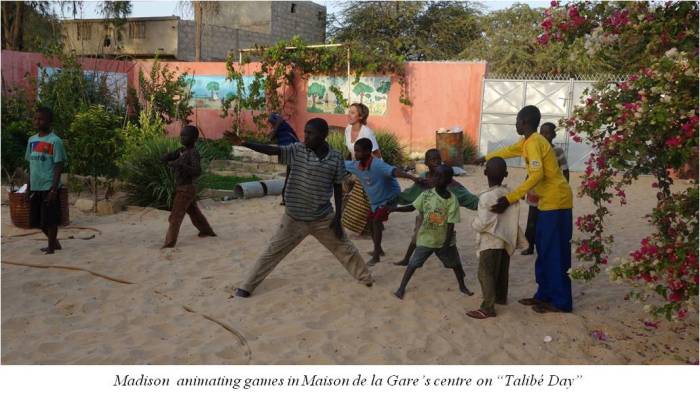News from Maison de la Gare
Maison de la Gare Through the Eyes of an American Volunteer
Tweeter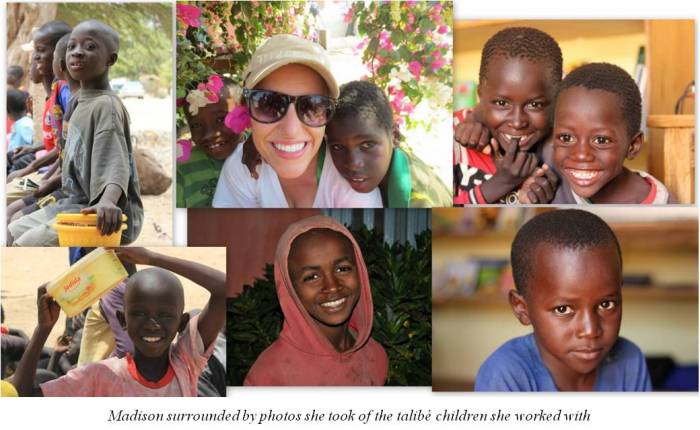
Heath Care and Hygiene Program
The inharmonious mumbling hum and smell of dirt and
poor hygiene have become familiar to my senses. As we set foot into each daara, the next resembles
the last. 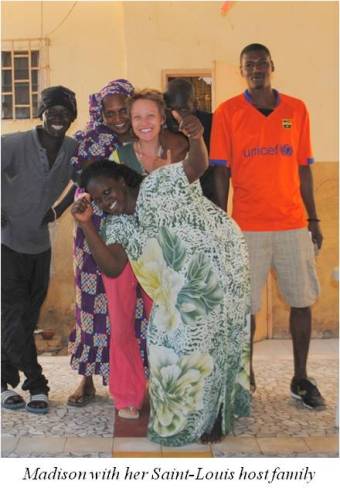 This became my reality over my three months volunteering with Maison de la Gare.
This became my reality over my three months volunteering with Maison de la Gare.
I was certain that my experience in Senegal would provide me with a unique viewpoint, but the scene
unfolding before my eyes was surreal. It may have taken a few days, but soon I was reassured that
I was in the right place. My initial feelings of fear and uncertainty quickly changed. Instead I
was spurred into action. It became a necessity to help these young boys as much as I was able.
I have been skeptical about the value of international aid, which is often tied to the interests of
the donor country. However, in volunteering with Maison de la Gare I witnessed the positive effects
that international financial support can have. I came to realize that no political strings were
attached to the funding that this organization receives from international NGOs and other donors.
This allows Maison de la Gare to work effectively without fear of governmental influence.
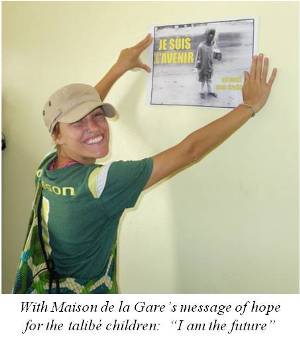
Maison de la Gare is making great efforts to stop the inhuman treatment of the begging talibé street
children. With only a small staff and global volunteers, its impact on the community is immense.
The organization works towards integrating talibé children into formal education and into the
community while providing physical and emotional support. Issa Kouyaté, the founder and president
of Maison de la Gare who quickly became one of my greatest role models, is totally committed to improving
the lives of the talibés. I was inspired by his
work, consistently embodying the hope and passion he wants to spread.
Maison de la Gare has established an environment where health care, sanitation, emotional support
and opportunities are made possible for these young boys.
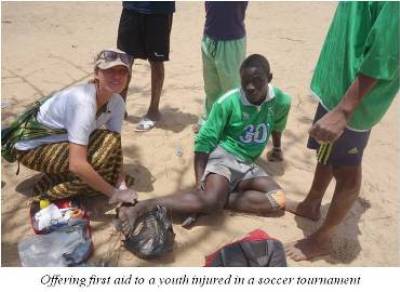 Their center has a library, garden,
health center, classrooms, showers, and workshops. Bright hibiscus flowers crawl up the side of
buildings that have been vibrantly painted. Intricate and beautiful child-focussed murals
surround the walls.
Their center has a library, garden,
health center, classrooms, showers, and workshops. Bright hibiscus flowers crawl up the side of
buildings that have been vibrantly painted. Intricate and beautiful child-focussed murals
surround the walls.
My days would begin with assembling first aid kits with sufficient materials to provide children
with basic health care. Common injuries include foot wounds due to lack of proper footwear, and
infected head wounds. Most could be treated with our first aid supplies. Our small team of staff
members and volunteers would walk or take taxis to nearby daaras, visiting two or three each day.
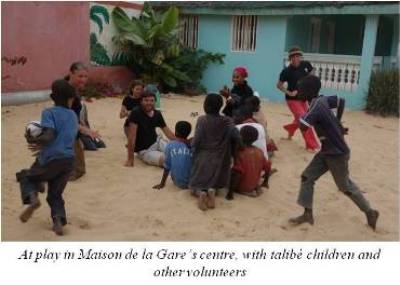
Around five in the evening, talibé children would begin trickling into Maison de la Gare’s center.
Maison de la Gare continues to emphasize the importance of basic hygiene. For most, the center's
facilities provide their only opportunity to bathe their bodies. Many talibés can go weeks without
bathing, causing easily preventable skin irritations and infections. Once showered, the boys are
able to participate in activities such as playing soccer and other games, creating arts and crafts,
reading books, and watering the garden. Beginner and intermediate French classes are offered.
Once each child has washed their hands they are given a nutritious baguette, which may be their
only dinner.
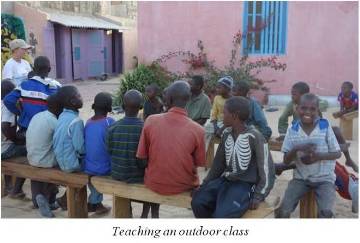
In one of my experiences, a large cluster of talibés sat before us as we treated an extremely
contagious case of eye infection that had spread to 30 to 40 boys. Unfortunately, we had only
treated roughly half our patients when suddenly the remaining boys dispersed. Their marabout
had ordered them to return to the streets to resume begging.
Throughout my experience with Maison de la Gare, the talibé children amazed me each and every
day. Despite the conditions they were are living in, the children still found the ability to
smile and be happy.
In the United States, nothing is celebrated more than freedom. But freedom is not a right; it
is a responsibility. Everyone on this planet should have an equal opportunity to achieve a
quality of life including good healthcare, adequate housing, proper nutrition and emotional
support. We all must share in this responsibility. I fully support the work of Issa Kouyaté
and Maison de la Gare, but for the future my hope is that such organizations will no longer be
needed.
